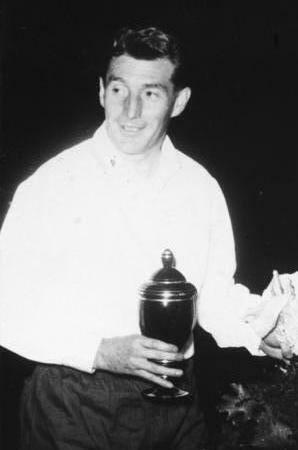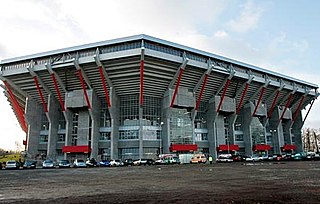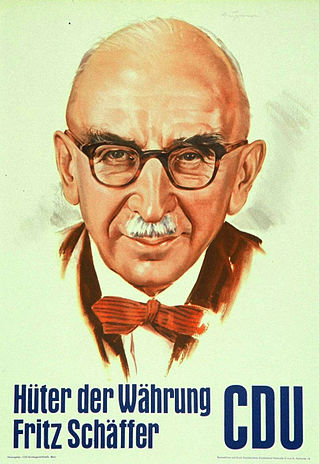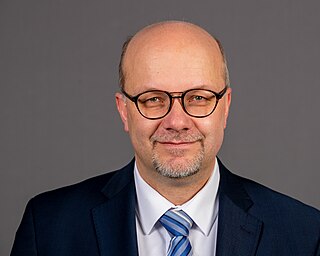
Friedrich Christian Anton Lang, better known as Fritz Lang, was an Austrian-born German-American film director, screenwriter, and producer who worked in Germany and later the United States. One of the best-known émigrés from Germany's school of Expressionism, he was dubbed the "Master of Darkness" by the British Film Institute. He has been cited as one of the most influential filmmakers of all time.

Friedrich "Fritz" Walter was a German footballer who spent his entire senior career at 1. FC Kaiserslautern. He usually played as an attacking midfielder or inside forward. In his time with the Germany and West Germany national teams, he appeared in 61 games and scored 33 goals, and was the captain of the team that won the 1954 FIFA World Cup. After his career, he was named honorary captain of the Germany national team.

Fritz Haber was a German chemist who received the Nobel Prize in Chemistry in 1918 for his invention of the Haber process, a method used in industry to synthesize ammonia from nitrogen gas and hydrogen gas. This invention is important for the large-scale synthesis of fertilizers and explosives. It is estimated that a third of annual global food production uses ammonia from the Haber–Bosch process, and that this food supports nearly half the world's population. For this work, Haber has been called one of the most important scientists and industrial chemists in human history. Haber also, along with Max Born, proposed the Born–Haber cycle as a method for evaluating the lattice energy of an ionic solid.

Mecklenburgisch-Vorpommersch is a Low German dialect spoken in the German state of Mecklenburg-Vorpommern. It belongs to the East Low German group.

Fritz-Walter-Stadion is the home stadium of 1. FC Kaiserslautern and is located in the city of Kaiserslautern, Rhineland-Palatinate, Germany. It was one of the stadia used in the 2006 FIFA World Cup. It is named after Fritz Walter (1920–2002), who played for the Kaiserslautern club throughout his career and was captain of the Germany national football team that won the 1954 FIFA World Cup in the "Miracle of Bern". The stadium was built on the Betzenberg hill, hence its nickname "Betze", and was opened in 1920.

Tennis Borussia Berlin is a German football club based in the locality of Westend in Berlin.

Germany was the host nation and top medal recipient at the 1936 Summer Olympics in Berlin. 433 competitors, 389 men and 44 women, took part in 143 events in 22 sports.

Germany competed at the 1928 Summer Olympics in Amsterdam, Netherlands. Germany returned to the Olympic Games after not being invited to both the 1920 and 1924 Games due to its role in World War I. Despite a total absence of 16 years since 1912, German athletes were ranked 2nd. 295 competitors, 260 men and 35 women, took part in 95 events in 16 sports.

Fritz Schäffer was a German politician of the Bavarian People's Party (BVP) and the Christian Social Union (CSU). He was the Bavarian Minister of Finance from 1931 to 1933, when the Nazis came to power in Berlin. In 1945 he became the first Minister President of Bavaria to hold office after the end of the Second World War. From 1949 to 1957, he was the West German federal Minister of Finance and, from 1957 to 1961, federal Minister of Justice.
Carl Stephenson was an Austrian-born German writer best known for his short story "Leiningen Versus the Ants".

Hirschstein is a municipality in the district of Meißen, in Saxony, Germany.

Priestewitz is a municipality in the district of Meißen, in Saxony, Germany.

The Berlin–Dresden railway is a double track, electrified main line railway in the German states of Berlin, Brandenburg and Saxony, which was originally built and operated by the Berlin-Dresden Railway Company. It runs from Berlin through the southern Teltow countryside and then between Lower Lusatia and Fläming Heath through Elsterwerda and the Großenhainer Pflege countryside to Dresden.

Großenhain Cottbus station was opened on 14 October 1862 by the Großenhain Branch Railway Company as the Leipzig station, located on the line from Priestewitz to Cottbus.

The Weißig–Böhla railway is a two-track, electrified main line in the German state of Saxony. It passes through an area near Großenhain called the Großenhainer Pflege and connects the Leipzig–Dresden and Berlin–Dresden railways, running between Leckwitz junction near Weißig and Kottewitz junction near Böhla. Its official opening took place after two years of construction on 3 December 2010 and the operations of regular trains started at the timetable change on 12 December 2010.

Priestewitz station is on the Leipzig–Dresden railway and the Großenhain–Priestewitz railway, which branches off it. The station is in the town of Priestewitz in the German state of Saxony.

Fritz Erler was a German politician representing the Social Democratic Party (SPD). From 1953 to 1957, he was Deputy Chairman of the Defense Committee of the Bundestag, the West German parliament. In this role, Erler played an important role in drafting the legislation that ensured democratic control of the Bundeswehr, West Germany's new armed forces.

Fritz Felgentreu is a German politician of the Social Democratic Party (SPD) who served as a member of the Bundestag from the state of Berlin from 2013 to 2021. He has been the chairman of Reichsbanner Schwarz-Rot-Gold since October 2021.

Fritz Güntzler is a German auditor and politician of the Christian Democratic Union (CDU) who has been serving as a member of the Bundestag from the state of Lower Saxony since 2013.

Erich G. Fritz is a German politician of the Christian Democratic Union (CDU) and former member of the German Bundestag.

















